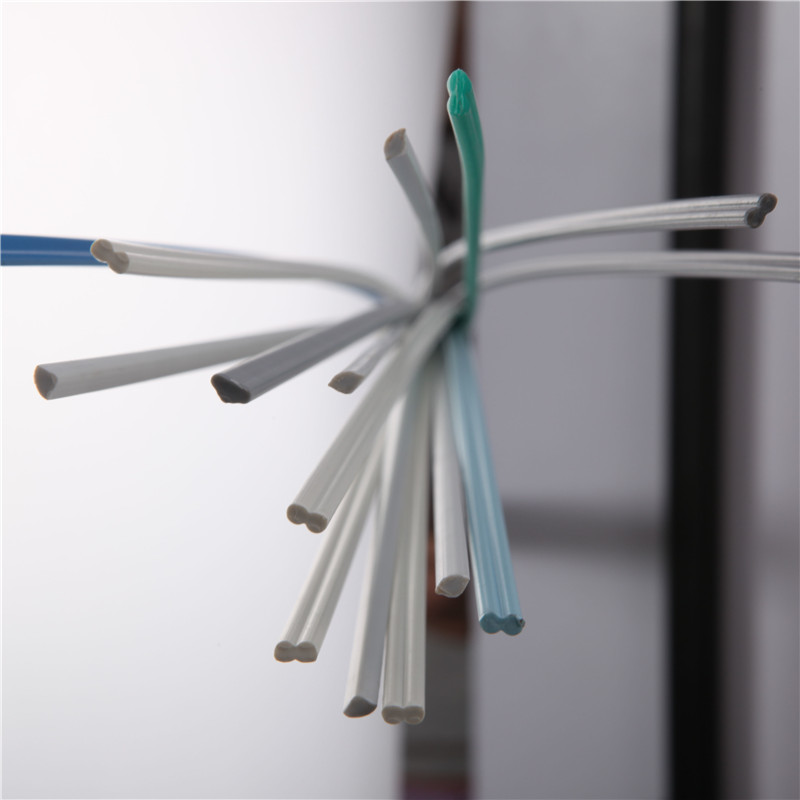11월 . 08, 2024 00:12 Back to list
Understanding the Benefits and Uses of PVC Conduit Pipe in Electrical Installations
Understanding PVC Conduit Pipe A Comprehensive Overview
In the world of electrical installations, the choice of materials is crucial for ensuring safety and efficiency. One of the most widely used materials for enclosing and protecting electrical wiring is the PVC conduit pipe. This article provides an in-depth look at PVC conduit pipe, its properties, benefits, and applications.
What is PVC Conduit Pipe?
PVC conduit pipe is a type of piping made from polyvinyl chloride (PVC), which is a plastic material known for its durability and resistance to corrosion. These pipes are designed to protect electrical wires and cables from environmental factors, physical damage, and mechanical stress. Due to its lightweight structure and flexibility, PVC conduit pipe has become a preferred choice for both commercial and residential electrical installations.
Types of PVC Conduit Pipe
PVC conduit pipes come in various types, each suited for specific environments and applications
1. Rigid PVC Conduit This type is durable and offers excellent protection against impacts and environmental conditions. It is often used in underground installations and in areas where the conduit may be exposed to harsh weather conditions.
2. Flexible PVC Conduit Unlike its rigid counterpart, flexible PVC conduit can bend and twist, making it ideal for tight spaces and applications where the pipe needs to follow intricate paths. It is commonly used in indoor wiring where flexibility is necessary.
3. Schedule 40 and Schedule 80 These are classifications that indicate the thickness and strength of the PVC conduit. Schedule 40 is suitable for most applications, while Schedule 80 provides additional strength and is used in environments where the pipes may face greater physical stress.
Benefits of PVC Conduit Pipe
pvc conduit pipe

1. Durability PVC conduit is resistant to moisture, chemicals, and UV rays. This makes it an excellent choice for both indoor and outdoor applications. It does not rust, corrode, or conduct electricity, making it a safer option for electrical installations.
2. Lightweight and Easy to Install The lightweight nature of PVC conduit makes it easy to handle and install. It can be cut and joined with relative ease, which speeds up the installation process and reduces labor costs.
3. Cost-Effective Compared to metal conduit options, PVC conduit is more affordable. The cost savings can extend beyond initial purchase; lower maintenance requirements and resistance to corrosion mean fewer replacement costs over time.
4. Fire Resistance While PVC can burn, it does not support combustion as readily as other materials. This characteristic can enhance safety in electrical installations where fire risks need to be minimized.
5. Environmental Impact PVC conduit can be produced with a lower carbon footprint compared to metals. Additionally, many manufacturers are committed to sustainable practices, including recycling and reducing waste during the production process.
Applications of PVC Conduit Pipe
PVC conduit pipe is versatile and can be used in a wide range of applications. Common uses include
- Residential wiring Protects electrical wiring throughout homes. - Commercial installations Ideal for office buildings, retail spaces, and warehouses where electrical systems require safeguarding. - Industrial environments Used for electrical systems in factories and plants, particularly in areas that experience exposure to chemicals or corrosive substances. - Underground installations Suitable for burying electrical cables to protect them from physical damage and environmental factors.
Conclusion
In summary, PVC conduit pipe is a reliable, cost-effective solution for protecting electrical wiring in various environments. Its durability, lightweight nature, and resistance to corrosion and environmental damage make it an ideal choice for a wide range of applications. Whether for residential, commercial, or industrial use, understanding the properties and benefits of PVC conduit can help ensure that electrical installations are safe, efficient, and long-lasting. As technology advances, the use of PVC conduit is expected to continue growing, further enhancing the safety and reliability of electrical systems worldwide.
-
High-Quality PPR Pipes and Fittings Durable ERA PPR & PVC PPR Solutions
NewsJul.08,2025
-
Black HDPE Cutting Board - Durable, Non-Porous & Food Safe HDPE Plastic Cutting Board
NewsJul.08,2025
-
High-Quality CPVC Panel Durable HDPE & PVC Panels Supplier
NewsJul.08,2025
-
Double PE Welding Rod Supplier - High Strength, Durable & Versatile Welding Solutions
NewsJul.07,2025
-
High-Quality PVC-O Pipe Supplier Durable 75mm PVC Pipe & Connections Leading PVC Pipe Company
NewsJul.07,2025
-
HDPE Drainage Pipe Supplier – Durable & Corrosion-Resistant Solutions
NewsJul.06,2025

